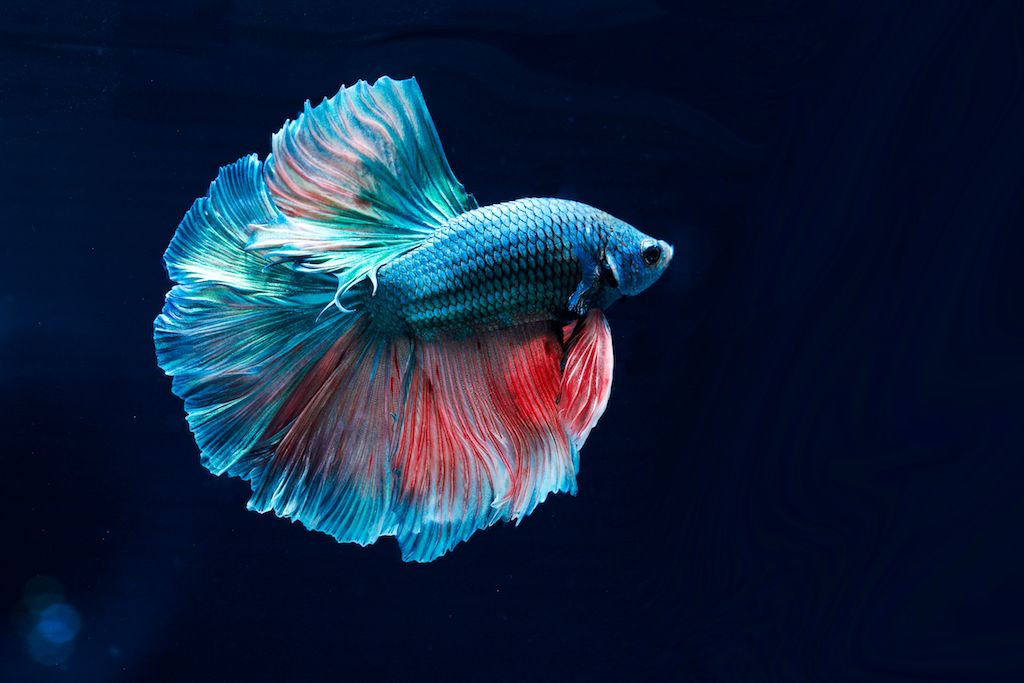The Ultimate Overview to Betta Fish Care: Essential Tips for Maintaining a Healthy and Successful Fish Tank Atmosphere
Reliable Betta fish treatment necessitates a comprehensive understanding of their distinct environmental and physiological needs. Establishing a suitable aquarium begins with selecting the right container dimension and making certain optimum water problems, which are crucial for the health and well-being of your Betta. Understanding appropriate feeding methods and producing a helpful habitat can considerably influence your fish's vigor and actions. As you think about these foundational facets, it ends up being clear that keeping a growing fish tank environment calls for focus to information and ongoing commitment. What particular strategies will you apply to boost your Betta's high quality of life?
Choosing the Right Tank
Picking the proper tank for your Betta fish is important to guaranteeing its health and well-being. Bettas prosper in settings that mimic their natural environments, which typically contain calmness, warm waters. A storage tank dimension of a minimum of 5 gallons is recommended to offer appropriate swimming room, as smaller sized tanks can result in stress and anxiety and wellness issues for these dynamic fish.
When choosing a tank, consider the tank's form and filtering system. Furthermore, a trusted purification system is necessary to preserve water quality and minimize the regularity of water adjustments.
Temperature policy is another vital aspect; Bettas like water temperatures in between 76 ° F and 82 ° F. Spending in a great heater will make certain that the water continues to be within this array, advertising a healthy and active way of life for your Betta. Supplying suitable storage tank designs and hiding places will aid decrease stress and motivate all-natural actions, additionally enhancing your Betta's wellness.
Maintaining Water Top Quality
Keeping optimal water top quality is essential for the health and wellness and longevity of Betta fish. This needs routine monitoring of various parameters, including temperature level, pH, ammonia, nitrite, and nitrate degrees. Bettas grow in temperature levels in between 76 ° F and 82 ° F, so preserving a stable temperature level is critical. Unexpected fluctuations can result in tension and disease.
The pH degree need to preferably fall between 6.5 and 7.5. Regular screening making use of a reputable water testing package can assist ensure these specifications remain within the appropriate varieties. Ammonia and nitrite levels ought to always go to 0 ppm, as even low concentrations can be hazardous to Betta fish. Nitrate levels should be maintained under 20 ppm to avoid long-term wellness concerns.
Normal water modifications are essential to maintaining water quality. Furthermore, including a durable purification system can help in keeping water quality and discover this quality, supplying a healthier environment for your Betta fish.
Suitable Feeding Practices
Supplying a well balanced diet plan is vital for the health and vivid coloration of Betta fish, as their dietary needs play a substantial duty in their total well-being. Betta fish are meat-eating by nature, calling for a diet regimen high in protein. A combination of premium pellets, icy or live foods such as bloodworms, brine shrimp, and daphnia can supply the crucial nutrients they need.
Feed your Betta fish 2 to 3 times a day, offering only what they can take in within 2 to 3 mins to stop overfeeding and maintain water top quality. Overfeeding can bring about obesity and wellness problems, consisting of swim bladder condition. It is necessary to check their nutritional intake and change section dimensions accordingly.
In enhancement to protein, a balanced diet regimen ought to include vitamins and minerals to promote optimal health and wellness. Take into consideration supplementing their diet regimen with top quality flakes or pellets specifically developed for Betta fish, as these usually have needed additives.

Producing a Suitable Habitat

Water high quality is extremely important; maintain a temperature between 76 ° F and 82 ° F, and guarantee the pH degree varies from 6 - betta fish.5 to 7.5. Routine water changes of 25-50% per week will assist keep toxic substances away and make sure a stable environment
Including plants and concealing areas is critical, as Betta fish are naturally territorial and delight in having areas to check out and pull away. Live or silk plants, together with caves and accessories, can develop a stimulating environment.

Regular Wellness Checkups
Carrying out regular wellness check-ups is vital for ensuring the health of Betta fish, as very early detection of possible issues can stop severe illness. These check-ups need to include a comprehensive assessment of the fish's physical condition, habits, and ecological elements.
Begin by observing the Betta fish for any type of indicators of distress, such as lethargy, anorexia nervosa, or unusual swimming patterns. Additionally, evaluate the fins and body for signs of staining, sores, or fin rot, which can suggest infections or bloodsuckers. Frequently monitoring the water high click this link quality in the fish tank is equally vital; specifications such as pH, ammonia, nitrite, and nitrate levels need to be maintained within optimal ranges to stop tension and health problem.
Furthermore, take into consideration preserving a log of wellness monitorings and water top quality examinations. Prompt intervention can make a significant distinction in the healing of your Betta fish, making sure a lengthy and healthy and balanced life in a well-kept fish tank environment.
Final Thought
In conclusion, successful Betta fish treatment pivots on producing and keeping an optimum fish tank atmosphere. By complying with these standards, aquarists can advertise the health and vibrancy of Betta fish, eventually resulting in a thriving aquatic ecological community.